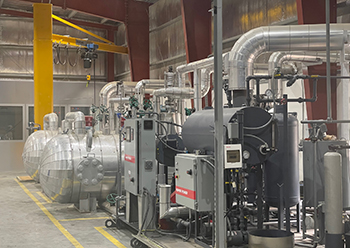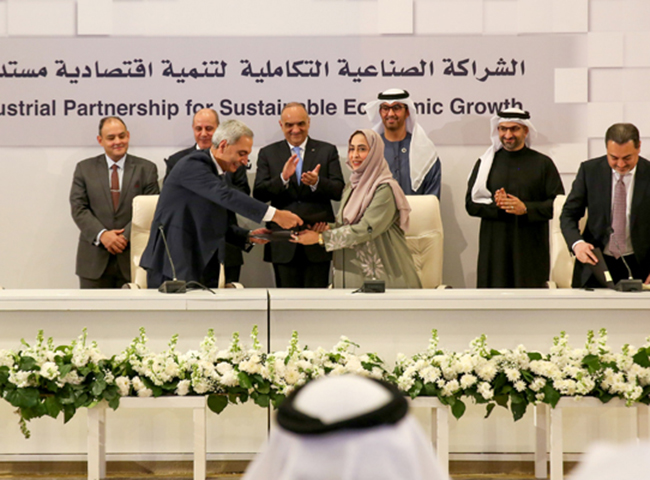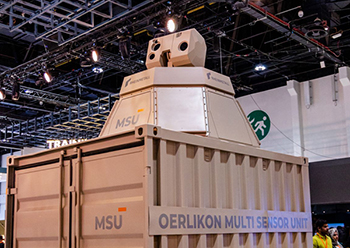

The meeting kicked off in the Jordanian capital in the presence of Dr Sultan bin Ahmed Al Jaber, UAE Minister of Industry and Advanced Technology and the UAE's special envoy for climate change; Abdulla Adel Fakhro, the Bahraini Minister of Industry and Commerce; Engineer Ahmed Samir Saleh, the Egyptian Minister of Industry and Trade of Egypt and Yousef Al Shamali, Jordanian Minister of Industry, Trade and Supply.
A total of 12 agreements were inked for 9 industrial projects which, inturn is expected to create approximately 13,000 job opportunities and boost national GDP in the partnering countries by more than $1.6 billion.
Jordan’s Prime Minister Dr Bisher Al Khasawneh attended the signing ceremony of the partnership agreements along with the industrial ministers from the four countries.
Al Khasawneh also met the ministers of the partner countries and stressed the importance of this partnership in strengthening bilateral relations and economic development, along with the importance of the industrial sector’s role within participating countries.
Dr Al Jaber said: "We are keen on collaborating and complementing regional efforts to achieve integrated sustainable economic development. The UAE is committed to enhancing collaboration with member states to ensure we all benefit from each other’s competitive advantages and capabilities."
"This partnership is beginning to yield tangible results. It represents an exceptional model for industrial partnerships among private sector companies," stated the UAE minister.
"It is testament to our collective ability to plan, integrate, and progress towards achieving our objectives, all while we are still at the beginning of this fruitful partnership. We are confident that we will witness the development of many new projects in the future," he added.
Al Jaber called upon companies in the respective countries to enter into partnerships and put forward proposals for projects that benefit from the capabilities of these countries and from competitive advantages, resources, and expertise.
"As governments, our responsibility is to support these projects, enhance partnerships and provide the economic environment that enables their success," he added.
In his address, Fakhro said the partnership offered a real opportunity to increase the efficiency of supply chains through the integration of industries in the region, which is a pillar of Bahrain's industrial strategy.
"Bahrain has proposed more than 10 industrial projects with an estimated investment value of over $2 billion. These include mature projects and projects in their early stages. The locations of these factories vary, as we believe that all partner countries should benefit from them," he observed.
The minister also invited the partnership to hold its next meeting in 2023 in Bahrain.
Al Shamali pointed out that this was an integrated Arab effort directed by the highest political levels of the four countries.
"Since launching this partnership, we have witnessed a multi-faceted boom that heralds the start of a profound and sustainable transformation in the relations between our industrial sectors," he noted.
"The first aspect of this shift was reflected in the economic discourse adopted by officials and media, who highlighted the benefits that our countries will reap through pursuing industrial integration," he added.
In his address, Saleh underlined Egypt's commitment to enhancing multilateral efforts with the UAE, Jordan and Bahrain to boost industrial integration among Arab nations and support economic relations.
"The economic crisis the world is currently experiencing demonstrates the necessity of achieving industrial integration among Arab states. It is clear we must strengthen regional partnerships and include the private sector as a major partner in implementing sustainable development plans and helping the Arab region to prosper," he added.
"Recent geopolitical and economic challenges demand stronger bonds among Arab nations and more robust economic partnerships. These partnerships can help to enhance resilience against future crises as well as achieve self-sufficiency and sustainable economic development," he added.
Strategic industrial accords
The Egyptian company Soda Chemical Industries announced an investment of $500 million to produce sodium carbonate, ‘soda ash’, which is the main raw material in many industries, such as the glass and detergent sector. The facility will have a production capacity of 500,000 tons annually.
An MoU was signed for a strategic partnership with the Emirates Flat Glass Company, owned by Dubai Investments, to purchase the final product.
UAE-based automotive manufacturer M Glory Holding announced the launch of a large manufacturing project with an investment of $550 million. The project will establish three electric vehicle factories with specialized production and assembly lines in the UAE, Jordan and Egypt.


